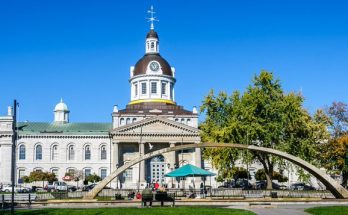Vancouver (BC)/CMEDIA: While reportedly leading industry representatives, First Nations, and other sector experts on a trade mission to Japan and South Korea, diversifying and expanding British Columbia (BC)’s forestry sector is at the top of mind of Ravi Parmar, BC’s Minister of Forests.
“Forestry has always been a cornerstone of British Columbia’s economy, and today, it’s our gateway to new global opportunities. B.C. is leading this mission at a time when our forestry sector is under attack by Donald J. Trump’s unfair and unjustified tariffs. We’re strengthening B.C.’s forestry sector by opening new markets, forging powerful partnerships and showing the world that B.C. produces the highest quality, most sustainably managed wood products on the planet. My message is clear: We will not be defined by American protectionism,” Parmar said.
As the second-largest market for BC lumber by value, Japan makes it the highest-value and oldest market in Asia for forestry products andsold forestry products valued at $887 million to Japan in 2024. Having exported $239 million of forestry products to South Korea in 2024, BC’s trade mission will work to expand that market.
Building on the momentum of the recently announced Forestry Innovation Investment (FII) office in London, England, the largest BC forest-sector mission to Asia, the seven-day trade mission, would begin on Nov 8.
FII is focused on expanding opportunities for BC forestry products to ensure BC’s forestry sector continues to be a key contributor to the provincial economy.
Signaling BC’s bold strategy to expand global reach, these initiatives not only strengthen existing partnerships but would open new markets for BC wood products.
“As we embark on this trade mission, our main goal is showcasing B.C.’s high-quality wood products produced by our talented and diverse workforce,” said Rick Doman, chair, Forestry Innovation Investment. “This trade mission will help to do just that as we build and expand global partnerships, while also strengthening our forestry sector right here at home.”
The goals of this mission include: forging new partnerships and strengthening existing ones built on diplomacy; highlighting BC’s world-class innovation, including advancing the use of value-added wood products, mid-rise buildings and mass-timber construction; and reinforcing BC as a global leader in sustainable forestry rooted in local prosperity and stewardship
“As British Columbia’s forest economy transforms, First Nations are transforming with it,” said Lenny Joe, CEO, B.C. First Nations Forestry Council. “Our participation in this mission to Japan and South Korea highlights the pivotal role and value First Nations bring to shaping the future of forestry at home and abroad.”
Parmar will be joined by Makenzie Leine, deputy minister, Ministry of Forests; Doman; and other representatives from FII, B.C.’s forestry sector and First Nations on the trade mission.
As part of a Team Canada approach, members of the Alberta government, including Todd Loewen, Alberta’s Minister of Forests, will also join this trade mission.
During the mission, delegates will: meet with government representatives, including Japan Forestry Agency and the Land and Housing Research Institute in South Korea; visit local businesses and manufacturers, such as: Mitsubishi Estate Wood Panel Plant, Xyence Pressure Treating Plant and Younglim Headquarters, the largest wood-product manufacturer and distributor in Korea and the largest importer of Canadian wood.
Building on work done with the Government of Canada to support BC’s forestry sector, this trade mission includes the need to transform the sector and increase access to new and expanded markets for softwood lumber.
It Has been recently proposed by the Province how the federal government can best assist in supporting workers, contractors and communities in BC, and the federal government agreed to take urgent action in the coming weeks.
Having taken action to support the expansion of forestry markets domestically and internationally, BC Market diversification helps the sector be more resilient to global market swings or market instability caused by US trade actions on softwood lumber and other wood products.
“Trade missions like this play an important role…With more than 50 years of COFI’s presence in Japan, we’ve seen the power of long-term collaboration between industry, governments and partners like Canada Wood Group in building…markets like Japan and Korea are essential to the future resilience and competitiveness of Canada’s forest-products sector,” Kim Haakstad, president and CEO, B.C. Council of Forest Industries (COFI) said.





